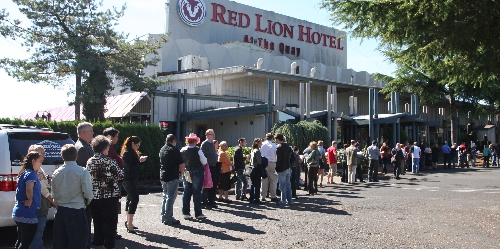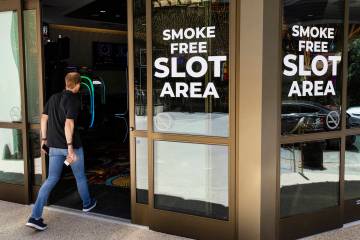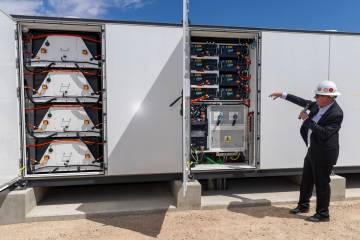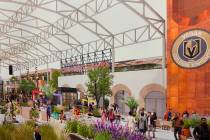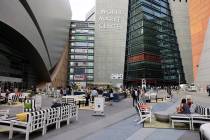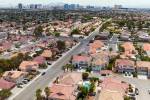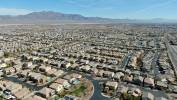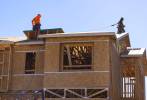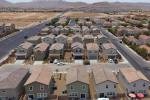Gains in gaming win, taxable sales can’t lift Las Vegas economy
If you have a magic wand, now might be the time to use it.
The nation's economy isn't improving enough on its own to send firm signals on an overall direction. Some indicators point to growth; others hint at continued decline. The mixed feedback means uncertainty and sluggish growth in the Southern Nevada economy at least into 2012.
"We're just going to move horizontally," said Steve Brown, director of the Center for Business and Economic Research at the University of Nevada, Las Vegas.
The national economy, meanwhile, is showing modest improvement -- not enough to reduce high unemployment but enough to ease fears of a double-dip recession.
Fewer people nationwide applied for unemployment benefits last week, though that is due partly to technical factors. And the economy grew slightly more in the April-June quarter than previously estimated, expanding at 1.3 percent rather than 1 percent. Growth is also expected to tick up in coming months.
Investors drew hope from the data, and from news that Germany's government approved a plan to bolster Europe's response to its debt crisis. The Dow Jones industrial average, after some sharp swings, ended the day up 143 points, at just under 11,154.
Other news Thursday was less encouraging. Chief executives of the nation's largest companies are more pessimistic than three months ago, according to a survey by the Business Roundtable trade group. Only about one-third of U.S. CEOs said they plan to hire or boost spending in the next six months. That's down from about half who said so in June.
And even with mortgage interest rates at historic lows and home prices down in the recession, fewer Americans signed contracts to buy houses in August, the second straight month of declines. The National Association of Realtors said its index of sales agreements fell 1.2 percent to 88.6. A reading of 100 is healthy.
Those national ups and downs are happening locally, too.
Tourism, gaming and taxable sales numbers have improved in 2011, spurring nearly 3 percent annual job growth in leisure and hospitality. But the gains haven't brought down broader unemployment, which hit 14.2 percent locally in the month as construction and other sectors lagged.
And like their national counterparts, business managers in Southern Nevada are more pessimistic these days. UNLV's Southern Nevada Business Confidence Index, which surveys companies about expectations for the quarter ahead, slipped to 99.91 for the fourth quarter, down from 99.96 in the third quarter. Dropping values equal increasing pessimism, and an index below 100 translates into downbeat feelings on sales, profits, hiring, capital expenditures and general economic conditions in Nevada.
Nor has Las Vegas housing emerged from its slump, despite low interest rates and prebubble prices. The latest Case-Shiller Home Price Index, which measures housing appreciation, showed homes in Las Vegas lost value in July, even as 17 of the 20 markets it tracks nationwide saw price jumps.
Brian Gordon, a principal of local research firm Applied Analysis, said stalled job creation and falling home prices are canceling out low interest rates. High unemployment leaves fewer people able to qualify for a home, and dropping prices encourage buyers to wait out the market for even better prices tomorrow.
With estimates showing more than 70 percent of Las Vegans underwater on their mortgages, the lowest interest rates in history won't help when it's time to refinance.
Las Vegas housing analyst Larry Murphy said housing here may be in a new era of persistent downturn, with median local prices poised to drop to $100,000 by the end of 2011. That's down from more than $280,000 at the bubble's 2006 peak.
"I'm at the point where I just don't expect it to get better," Murphy said. "Las Vegas still has a pipeline of future foreclosures and as long as we have that, there's no way to recover."
Observers say middling numbers mean more muddling through for Las Vegas.
"The national economy is strong enough that we could see improvements in gaming and tourism in the last few months of the year," Brown said. "But other parts of the economy just aren't improving, so on balance, we'll probably see either no growth or very little growth through the end of the year."
Gordon agreed, noting that more Las Vegans have entered the labor force in recent months, even as economic uncertainty has kept businesses cautious about significant investments in growth.
And without that magic wand, breaking free of the current sluggish cycle will take time more than anything else. Beyond the usual talk about economic diversification or speeding up foreclosures -- both of which would take years -- there's little the city and its leaders can do to work through the process.
"It's mostly a waiting game, and that's true at the national level, too," Brown said. "Essentially, we have to wait until the financial situation is back in a more normal state."
When things do pick up, they could pick up quickly.
There's evidence of pent-up demand for housing nationally, given the tough mortgage-qualifying climate, Brown said. What's more, the long-term outlook for Las Vegas remains strong, with the city in the path of a coming wave of retirees seeking warm weather and cheap housing. But with several years of housing inventory sitting empty on the market and consumers still strapped, it'll be a few years before real estate turns around here.
"The world is much different than it was five or 10 years ago," Gordon said. "Businesses and individuals are dealing with substantial debt loads they're forced to work through. Repayments of those obligations can span a number of years before financial situations and overall confidence levels return to historical averages."
Contact reporter Jennifer Robison at 380-4512 or jrobison@reviewjournal.com and reporter Hubble Smith at 383-0491 or hsmith@reviewjournal.com. The Associated Press contributed to this report.



